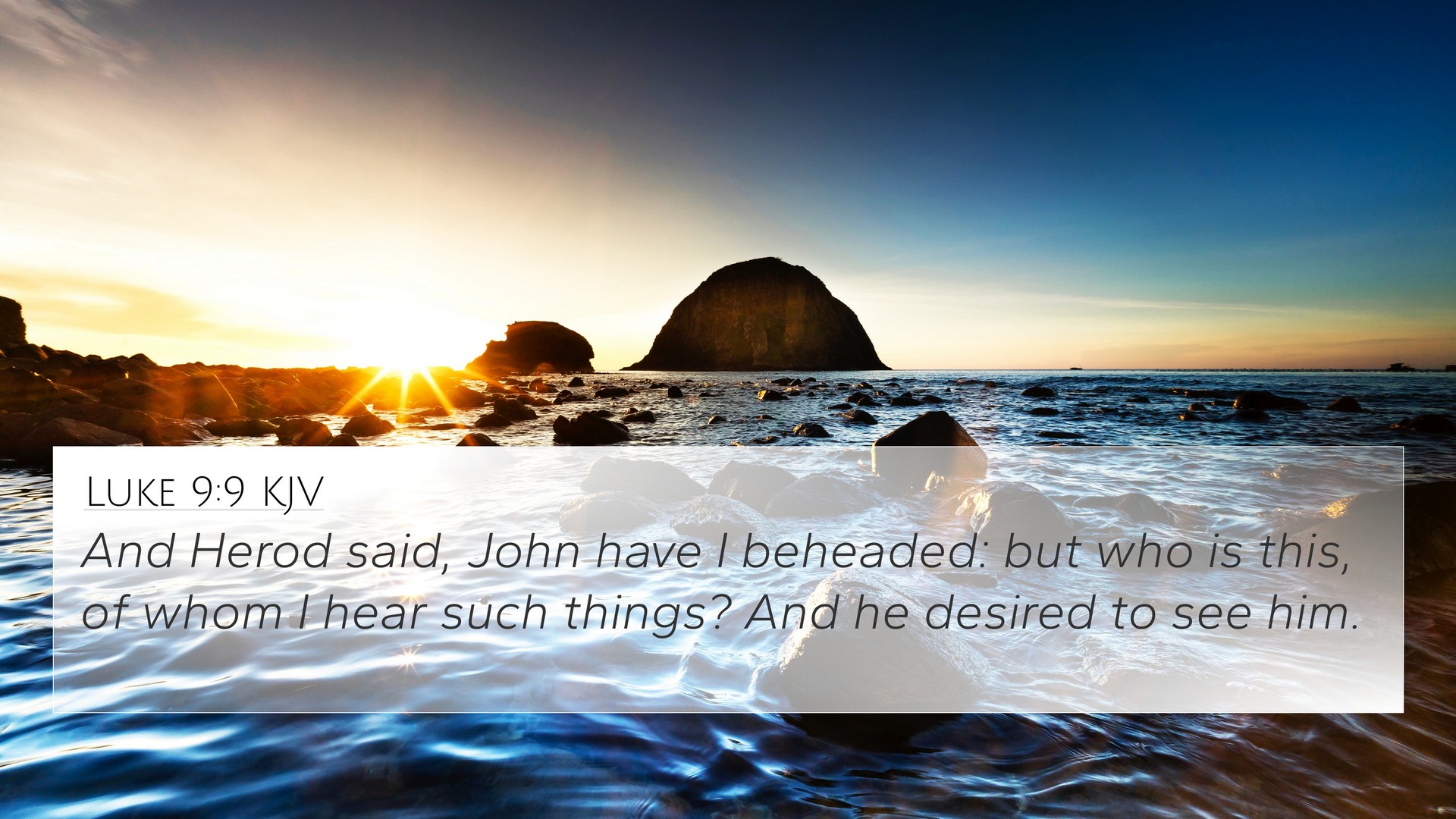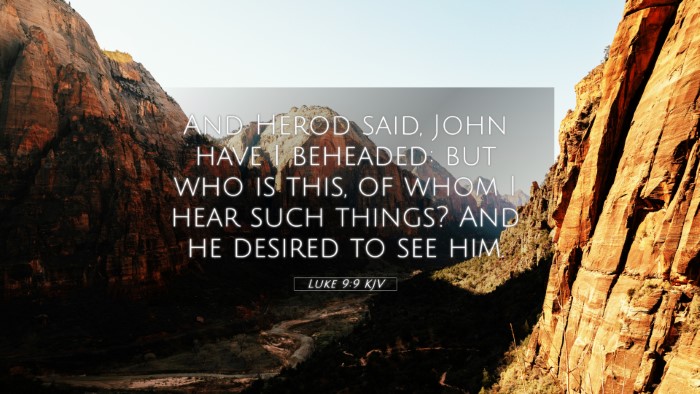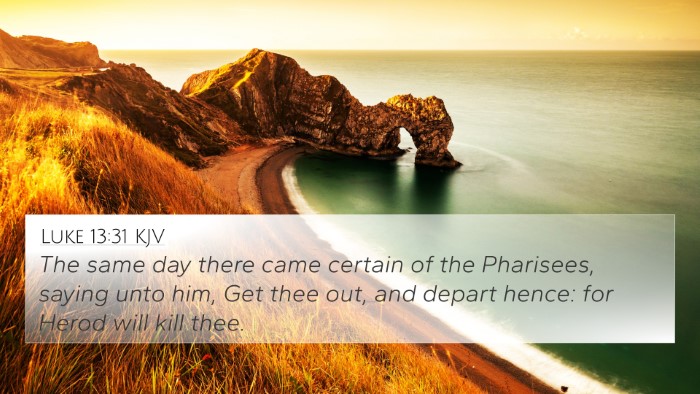Bible Verse Meaning: Luke 9:9
Luke 9:9 states, "But Herod said, 'I beheaded John. Who, then, is this I hear such things about?' And he tried to see him." This verse highlights the curiosity and concern of Herod regarding the figure of Jesus, reflecting on the implications of Jesus's ministry and its connection to John the Baptist.
In this passage, several themes emerge that intertwine the narrative of Jesus with the earlier prophetic ministry of John. Insights from public domain commentaries like those of Matthew Henry, Albert Barnes, and Adam Clarke reveal a deeper understanding of the implications of this verse.
Commentary Insights
Matthew Henry's Commentary emphasizes that Herod's remark signals his guilt and fear regarding his actions against John the Baptist. He recognizes that the miraculous deeds attributed to Jesus stir his conscience about having executed John. This indicates that the response to Jesus's ministry is not only one of curiosity but also of deep introspection about moral choices.
Albert Barnes elaborates on the political and social background of Herod's kingdom. His concern to "see" Jesus reflects the desire of rulers to understand the movements among the populace, especially those that might challenge their authority. Barnes suggests that this inquiry shows the tension between earthly power and divine authority that Jesus embodies.
Adam Clarke connects this inquiry to the broader prophetic tradition, suggesting that Herod sees Jesus as a possible reincarnation of the prophets. Clarke highlights that the question posed by Herod speaks to the human tendency to seek clarity in times of confusion regarding leadership and prophetic voices.
Thematic Connections and Cross-References
This verse can be linked to several significant biblical themes and cross-references that enhance our understanding:
- Matthew 14:1-2 - Herod hears about Jesus's miracles and attributes them to John risen from the dead.
- Mark 6:14-16 - A parallel account of Herod’s reflection on John and Jesus, emphasizing the impact of John’s prophetic voice.
- Luke 3:19-20 - Discusses the imprisonment and later beheading of John, laying the foundation for understanding Herod's actions.
- John 10:41-42 - References the works of John, which could contextualize the significance of Jesus's ministry and the public's perceptions.
- Matthew 11:14-15 - Jesus's affirmation of John the Baptist's role augments the interplay between these two figures.
- Luke 7:28 - Offers insight into John’s role as the greatest prophet and sets the stage for understanding Herod's dilemma.
- Hebrews 1:1-2 - Discusses prophetic voices through history, connecting the inquiry about Jesus with God’s ongoing revelation.
- Matthew 21:11 - The crowds recognized Jesus as a prophet, linking public perception to Herod's fear and curiosity.
- John 1:20-23 - Discusses John the Baptist’s denial of being the Messiah, which opens questions about the identity of Jesus.
- Acts 13:24-25 - References John’s ministry leading into the proclamation of Jesus, illustrating their connected missions.
Inter-Biblical Dialogue
The inquiry made by Herod in Luke 9:9 initiates a dialogue across biblical texts, revealing the dynamics of power, prophecy, and public perception. These connections enhance our appreciation for the continuity found in scripture. Such cross-referencing aids in identifying not only theological themes but also historical contexts and personal moral reflections.
Applications for Bible Study
For those engaging in bible cross-reference studies, this verse illustrates the importance of understanding narrative threads that run through the text. The following tools and methods may help facilitate deeper insights:
- Bible concordance - Essential for finding thematic connections across scripture.
- Bible cross-reference guide - Helpful for linking concepts between Old and New Testaments.
- How to use Bible cross-references - Techniques for identifying relationships between verses.
- Cross-referencing Bible study methods - Strategies to explore interconnections across the biblical narrative.
- Bible reference resources - Leverage comprehensive materials that cover extensive cross-referencing.
Conclusion
Luke 9:9 serves as a thought-provoking exploration of the implications of Jesus's ministry and the moral responsibilities of those in leadership. By studying and cross-referencing the contexts, we gain insights into the profound narratives woven through scripture, enriching our understanding and fostering a deeper relationship with God's word.




